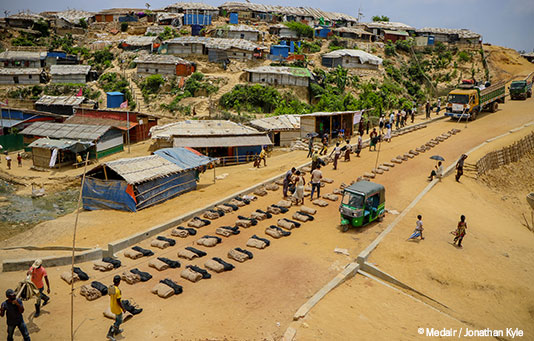5.Getting involved for one’s community
Jannat, a Rohingya refugee, volunteers with one of our partner NGOs in Bangladesh. She provides parents with training on sound nutritional practices for their children. Raising awareness about health and human rights, disseminating information about the services available in the camp, approaching and supporting the most vulnerable people, identifying abuses…
The Rohingya people are involved in helping their own community, bringing their skills to our partner NGOs’ projects in Bangladesh. While engaging in a rewarding task, these people use their language skills and knowledge of their community to help make relief work more effective and culturally appropriate.











